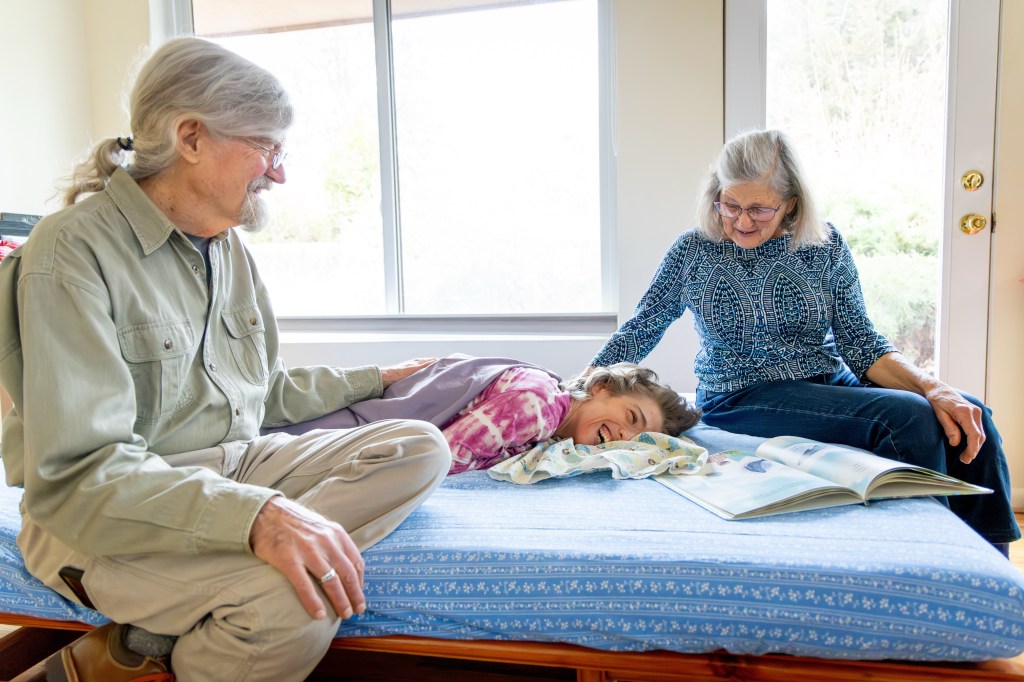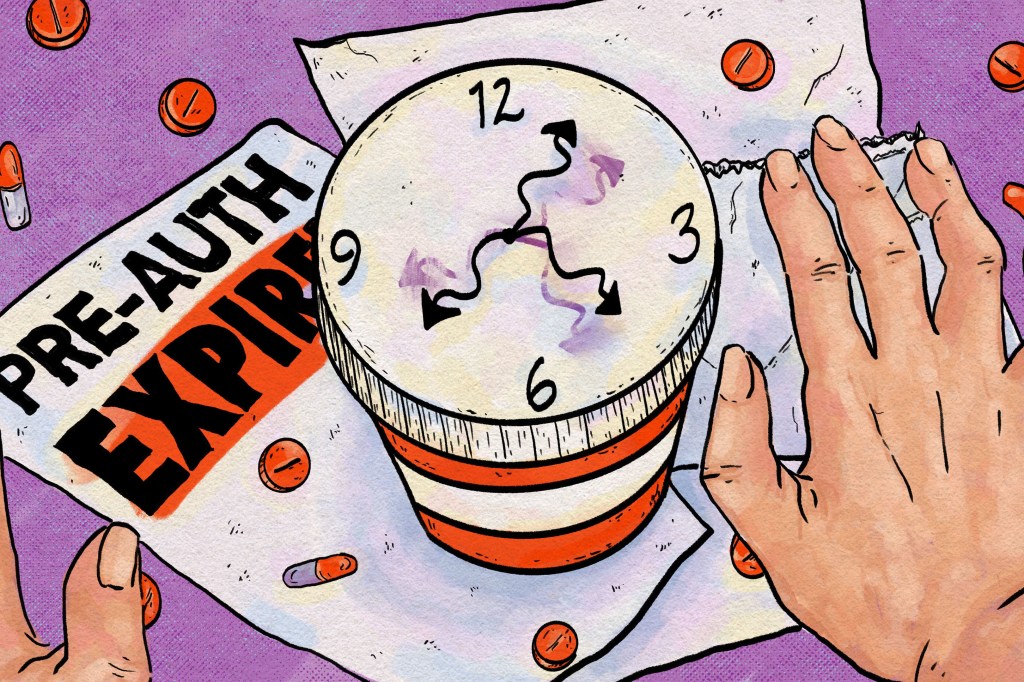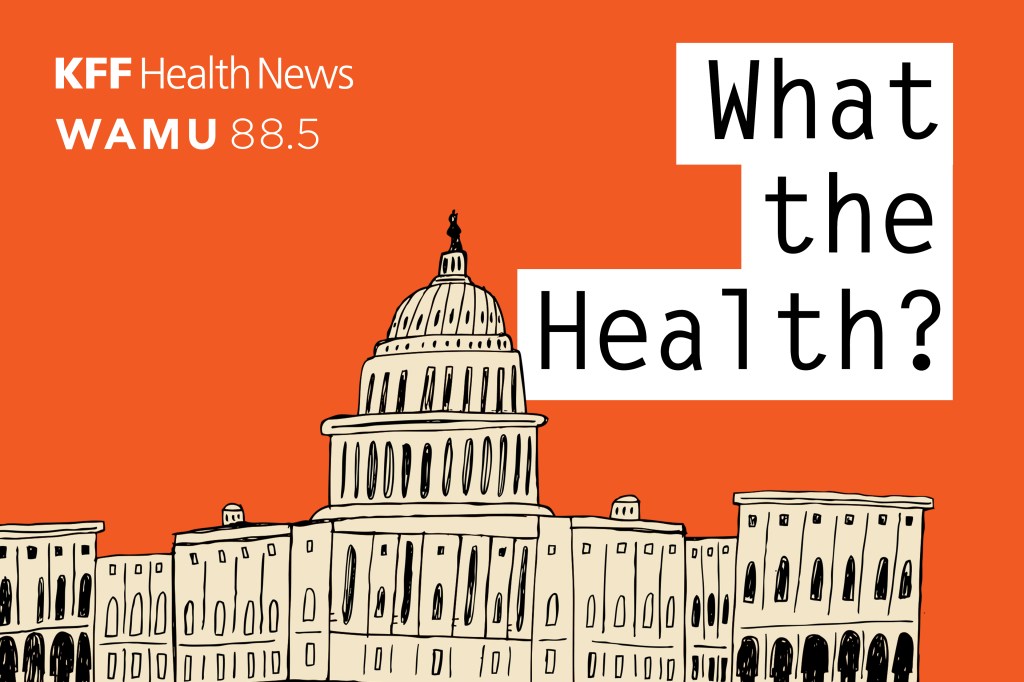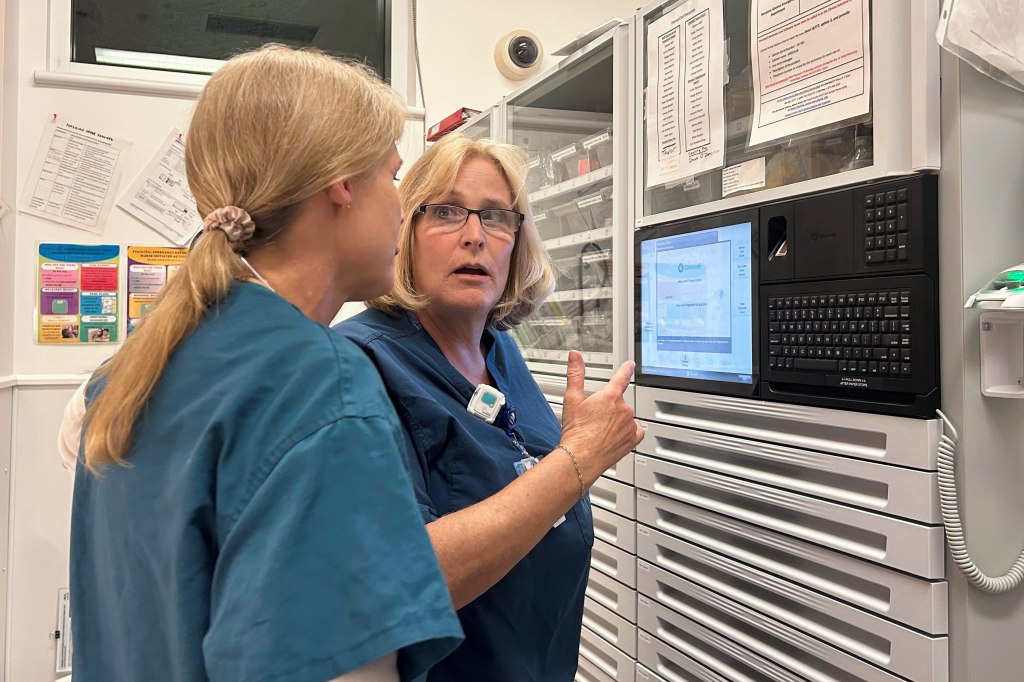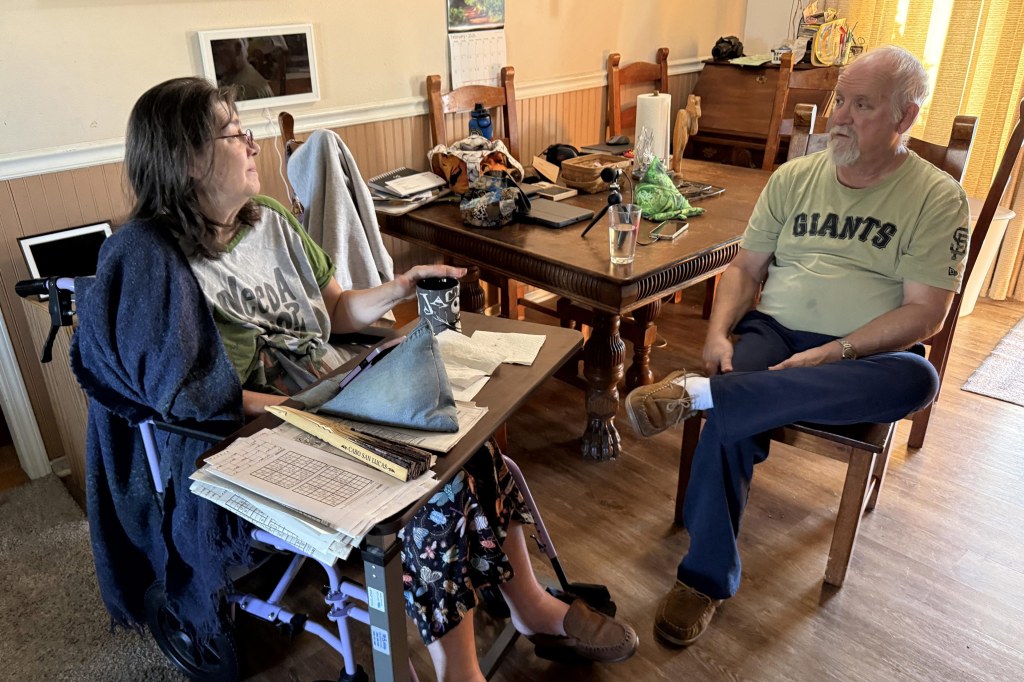- The dental workforce trends that will dominate 2026
- Federal Medicaid cuts threaten dental care access: See the potential impact by state
- Children’s Mercy raises $150M for mental healthcare
- California awards $291M to expand behavioral health housing, services
- Think bigger – Turning AI from Trends to Long-Term Transformation
- UnityPoint Health hospital names market chief nursing officer
- OhioHealth builds well-being programs to reshape caregiver culture
- Washington hospital staff vote ‘no confidence’ in management company
- U of Mississippi Medical Center restores phone lines after cyberattack
- 13 health system IT leadership moves
- How health systems are repositioning informatics
- Mississippi hospital names COO
- Ex-Amazon Health leader joins Spotify founder’s health tech startup
- Know the True Value of Your Lab When an Offer Is on the Table
- U of California offers 32% wage hike in union talks
- UF Health taps new outpatient senior VP
- UAMS names new director of cardiovascular medicine division
- CMS’ add-on billing code boosts specialist pay: Study
- Lawmakers introduce bill to reverse Medicaid cuts, expand Medicare benefits
- Florida medical center to expand with ASC
- New Jersey woman charged with practicing unlicensed dentistry
- CMS extends hospital-at-home waivers for 5 years: What ASCs need to know
- 100+ organizations call on CMS to revise 2027 MA rates
- The retention breakthrough anesthesia needs
- Oklahoma advances interstate compact bill
- Brown University Health names new chief of cardiac surgery
- UNC Health Appalachian offers psychiatric physician training program
- Former PepperPointe Partnerships COO joins DPO
- The Smilist expands into Virginia
- Physician-led orthopedic ASC opens in Florida
- Colorado Medicaid ABA audit finds $77.8M in improper payments
- Georgia opens 30-bed forensic mental health unit to ease jail backlog
- Pennsylvania county cuts ribbon on $19.8M mental health diversion center
- Outpatient cardiology’s CMS whiplash
- 12 new ASCs in February
- UHS to roll out behavioral health revenue cycle AI tools in 2026
- UHS to roll out behavioral health revenue cycle AI tools in 2026
- 15 dentists making headlines
- CMS to suspend enrollment into Elevance’s Medicare Advantage plans
- Report: Most states investing in value-based care with Rural Health Transformation Program
- U.S. Tops 1,100 Measles Cases This Year as Outbreaks Grow
- FDA To Offer Cash Bonuses for Faster Drug Reviews
- 10 providers seeking RCM talent
- PDS Health added de novos across 3 states in February
- Novant posts 4.8% operating margin in 2025
- 'One2PrEP': Gilead's 1st Yeztugo DTC ad reimagines hit song to highlight biannual dosing
- Cleveland Clinic posts $913M operating income, 5% margin — 7 things to know
- Former Optum CEO Heather Cianfrocco to depart UnitedHealth Group
- New Drug, Acoziborole, Could Boost Efforts to Wipe Out Sleeping Sickness
- Chocolate Male Supplement Recalled Over Hidden Erectile Dysfunction Drug
- Clinician Engagement: The Operating Lever Behind Margin and Throughput
- Your Anesthesia Subsidy: Key Questions Every Hospital C-Suite Must Answer
- Amid unfolding Middle East war, pharma giants keep close eye on employee safety, supply chains
- CMS set to suspend enrollment in Elevance Health's Medicare Advantage plans
- Kennedy adds 2 new members to CDC’s vaccine panel ahead of delayed meeting
- Kennedy adds 2 new members to CDC’s vaccine panel ahead of delayed meeting
- Urban Traffic Noise Disrupts Sleep, Affects Heart Health After One Night
- Hormone Therapy Might Be Unnecessary For Some Prostate Cancer Patients
- Benzodiazepine Use Down In U.S., But OD Risk Remains, Study Says
- GLP-1 Drugs Might Ease Chronic Migraine, Study Says
- Blood Test Reveals Alcohol-Related Liver Disease
- Telemedicine Visits Cost Five Times Less Than In-Clinic Care
- Families Defend Disability Services Amid Medicaid Cuts
- Medicaid Is Paying for More Dental Care. GOP Cuts Threaten To Reverse the Trend.
- Bavarian Nordic CEO to follow board chair out the door after failed private equity takeover
- Ascendis gains more altitude with FDA approval for dwarfism drug Yuviwel
- CDMO Quotient extends Ipsen supply pact for rare disease drug Sohonos
- Quest Diagnostics launches Google-powered AI chatbot to help patients understand lab results
- Tennr takes aim at phone call bottlenecks as it builds out automation for patient referral process
- DoseSpot, Arrive Health merge to combine prescribing tools with pharmacy, medical benefit data
- Why Digital Tool are Needed to Cope with Increasing Pressures in MedTech Innovation
- Why Digital Tool are Needed to Cope with Increasing Pressures in MedTech Innovation
- Electronics Pollution Pose Added Threat to Endangered Dolphins, Porpoises
- Flea And Tick Pills May Pose Environmental Risks, Study Finds
- ICE, ALS, Addiction Medicine, and Robotic Ultrasounds: Journalists Sound Off on All That and More
- 11 behavioral health executive moves to know
- 3 behavioral healthcare M&A deals in 2026
- Anthem Blue Cross of California pushes E/M downcoding policy to April
- Iowa dentist surrenders license
- Temple University gets approval for $3.19M rural dental clinic
- A Canadian Hospital Scoops Up Nurses Who No Longer Feel Safe in Trump’s America
- Statement on the Adoption of Final Rules Under the Holding Foreign Insiders Accountable Act
- Statement on Final Rules for the Holding Foreign Insiders Accountable Act
- State Medicaid budgets to weather $664B reduction through 2034 due to OBBBA: RAND
- Clover Health CEO said company sees opportunity in complex MA environment
- How pharma marketers are capturing the power of podcasts to connect with consumers
- Cigna's Evernorth quietly acquires hospital pharmacy CarepathRx
- Walgreens debuts virtual weight management clinic with access to GLP-1 meds
- New Obamacare Rules Could Raise Deductibles to $31K For Families
- Study Suggests One Common Amino Acid May Affect How Long Men Live
- Merck to wind down Gardasil production at N.C. plant, lay off 150-plus
- Walmart Great Value Cottage Cheese Recalled Over Pasteurization Issue
- Chris Bosh Says He’s 'Lucky To Be Alive' After Sudden Health Scare
- Patrick Kennedy: Collab with MAHA is essential to address mental health crisis
- Lilly debuts Nvidia supercomputer with fanfare and focus on escaping traditional pharma lifecycle
- Alignment CEO John Kao offers measured response to proposed 2027 MA rates
- Sanofi, Genentech, Kedrion back star-studded bleeding disorder awareness campaign
- Op-ed: Our patients deserve better safety reporting. AI could be the answer
- After CHMP nod, Moderna CEO applauds EU's 'rigorous scientific review'
- UCB's fast-growing Bimzelx leaps across blockbuster sales threshold as HS momentum builds
- How the Brain Learns to Have Seizures During Sleep
- Blood Test Can Predict Short-Term Survival Among Seniors
- Why Turning 19 Spikes Medicaid Loss for Millions
- Crash Course Might Speed Brain Stimulation Treatment For Depression, Study Suggests
- Wildfire Smoke Linked To Increase In Violent Assaults
- More Parents Are Refusing A Life-Saving Shot For Their Newborns, Study Finds
- He Needs an Expensive Drug. A Copay Card Helped — Until It Didn’t.
- To Avoid Care Disruptions, Know When the Clock Runs Out on Your Prior Authorization
- As SCOTUS takes on 'skinny label' review, top US lawyer sides with generics maker
- Lake Nona Impact Forum: There can't be longevity without tech
- Fierce Pharma Asia—China deal growth; Daiichi's new CMO; Astellas-Vir bispecific tie-up
- Autoimmune CAR-T: Navigating the FDA’s new regulatory playbook
- FDA Approval for BIOTRONIK Solia CSP S Pacing Lead For LBBAP
- FDA Approval for BIOTRONIK Solia CSP S Pacing Lead For LBBAP
- Catalyst OrthoScience gets FDA 510(k) Clearance of Archer® Patient-Specific Instrumentation for Shoulder Arthroplasty
- Catalyst OrthoScience gets FDA 510(k) Clearance of Archer® Patient-Specific Instrumentation for Shoulder Arthroplasty
- Smith+Nephew signs distribution agreement with SI-BONE
- Smith+Nephew signs distribution agreement with SI-BONE
- Quantum Surgical Acquires NeuWave Medical, Inc.
- Quantum Surgical Acquires NeuWave Medical, Inc.
- How Pharma is Expanding its Global Footprint to Advance Clinical Research
- Partnering to Advance Drug Delivery Innovation
- What the Health? From KFF Health News: What About the State of Health?
- Teladoc Health reports slower growth, offers cautious 2026 outlook as it shifts telehealth model
- CFO Mark Kaye to take the helm at Carelon in leadership shake-up at Elevance Health
- Insurance groups say proposed flat Medicare Advantage rates fail to meet the moment
- Health Gorilla urges court to toss lawsuit filed by Epic, health systems
- Stryker launches Synchfix™ EVT, expanding options for flexible syndesmotic fixation
- Stryker launches Synchfix™ EVT, expanding options for flexible syndesmotic fixation
- Democrat-Led States Sue Trump Administration Over Cuts to Childhood Vaccine Schedule
- CDC Vaccine Advisory Panel To Revisit COVID Shot Safety Next Month
- Frozen Blueberry Recall Issued Across Four States for Listeria
- Boehringer's Hernexeos secures speedy first-line expansion in FDA's 2nd national priority nod
- 'Like talking to a brick wall': Senate hearing takes aim at FDA's rare disease review process
- After delay, CDC vaccine panel sets new dates to discuss long COVID and mRNA shot safety
- Decision Criteria for Technology Commercialization of Medical Devices in 2026
- Decision Criteria for Technology Commercialization of Medical Devices in 2026
- Cientos de enfermeros estadounidenses dejan atrás el Estados Unidos de Trump y eligen trabajar en Canadá
- Continuous Cardiac Monitoring: Redefining the “End” of a Clinical Study?
- Continuous Cardiac Monitoring: Redefining the “End” of a Clinical Study?
- Could Drone-Delivered Defibrillators Save Lives?
- Inflammation Linked To Brain Damage, Memory Problems Among Football Players
- Early Birds, Active Folks Less Likely To Develop ALS
- Disasters Can Affect Mental Health A Decade Later, Review Finds
- AI Chatbots Can Contribute To Worsening Mental Illness, Study Finds
- Newborns Exposed to More ‘Forever Chemicals’ Than Once Thought
- Study Highlights Unique Parenting Struggles of Younger Patients With Heart Disease
- Altman-backed startup Verifiable rolls out AI agent to automate credentialing
- ‘You Aren’t Trapped’: Hundreds of US Nurses Choose Canada Over Trump’s America
- ‘Kind of Morbid’: Health Premiums Threaten Their Nest Egg. A Terminal Diagnosis May Spare It.

Michigan Democrats are warming up their political machines for the 2026 midterm elections. It is clear that Medicaid and Medicare changes in the OBBBA will be weaponized against the Republicans. This Michigan Advance political analysis is light on how Medicaid and Medicare changes will be used by Democratic candidates opposing each other in primaries, which will occur before the winning Democratic candidates get their chance to take on the Republicans. Still worth a read:
On Medicare and Medicaid anniversary, Michigan Democrats slam Rogers and James on health care
By Kyle Davidson - July 30, 2025As U.S. Rep. John James (R-Shelby Township) and former U.S. Rep. Mike Rogers (R-White Lake) each seeks to win Michiganders over in 2026, Michigan Democrats are warning the two politicians are not to be trusted when it comes to health care.
Marking Wednesday as the 60th anniversary of President Lyndon B. Johnson signing the legislation which established Medicare and Medicaid, members of the Michigan Democratic Party slammed James and Rogers for backing Republicans’ “Big Beautiful Bill,” arguing the policy takes away health care from more than 700,000 Michiganders in order to fund tax cuts for billionaires.
“These are our neighbors, our family members, people working multiple jobs who still can’t afford private insurance, seniors in nursing homes, children with disabilities and pregnant mothers,” Michigan Democratic Party Chair Curtis Hertel said.
Additionally, the nearly $1 trillion in cuts to Medicaid pose a risk to rural hospitals, with Hertel pointing to data from the University of North Carolina’s Cecil G. Sheps Center warning that the McLaren Central Michigan Hospital in Mt. Pleasant, U of M Health-Sparrow Carson Hospital in Carson City and the Ascension Borgess-Lee Hospital in Dowagiac are facing a high risk of closure.
“When rural hospitals close, entire communities suffer. These facilities are often the largest employers in their regions. We’re talking about thousands of good paying jobs disappearing, local economies collapsing and families having to drive hours for basic medical care.…this was a choice, not an inevitability, and it’s the wrong choice for Michigan,” Hertel said.
James is running for governor, while Rogers is running another race for U.S. Senate, following an unsuccessful run against now-Sen. Elissa Slotkin (D-Holly) in 2024.
Alongside James, Michigan Senate Minority Leader Aric Nesbitt (R-Porter Township), former state attorney general Mike Cox, Genesee County truck driver Anthony Hudson and Traverse City native Evan Space are seeking the Republican nomination. Meanwhile, Secretary of State Jocelyn Benson, Lt. Gov. Garlin Gilchrist and Genesee County Sheriff Chris Swanson are seeking the Democratic nomination.
Detroit Mayor Mike Duggan, a longtime Democrat, is running as an independent.
While Rogers is so far unopposed in the race for the GOP nomination for Senate, U.S. Rep. Haley Stevens (D-Birmingham), state Sen. Mallory McMorrow (D-Royal Oak), former Michigan Speaker of the House Joe Tate (D-Detroit) and former Wayne County Health Director Abdul El-Sayed are seeking the Democratic nomination.
State Rep. Carrie Rheingans (D-Ann Arbor) argued Rogers had made a career out of abandoning Michigan, purchasing a mansion in Florida while failing to maintain a home in Michigan.
She also slammed Rogers’ for voting in support of Republican budget proposals during his time in the House that opponents argued would turn Medicare into a voucher system.
Rheingans also pointed to James as a key vote in support of the Republicans’ tax and spending plan, which she warned would also increase prices for individuals receiving insurance through the Affordable Care Act marketplace.
A spokesperson for James did not respond to a request for comment.
Rhonda Maney, a retired OB-GYN said that roughly one in five of the pregnant patients she saw during her 25-year career were on Medicaid for prenatal care.
“The vast majority of these patients were working poor. These are young families, young women who have jobs, but they’re either under insured or uninsured. So losing Medicaid for them means losing access to prenatal care,” Maney said.
Nonpregnant patients who lose access to Medicaid will likely be forced to forego regular checkups and screenings that can detect cancer and heart disease, Maney said.
Individuals who are unable to receive screenings are more likely to end up in emergency rooms and intensive care units, meaning more expensive care, leaving hospitals to bear the burden for uncompensated care from patients who cannot afford it, Maney said, with some hospitals being forced to close due to a loss in compensated care.
Alyssa Brouillet, communications and chief spokesperson for Rogers’ Senate Campaign, accused the Democrats of fearmongering, arguing the policy would protect care for seniors, children, pregnant women, and people with disabilities.
She also argued the bill would “encourage able-bodied Americans to get back to work” and falsely stated the bill would remove 1.4 million undocumented immigrants from receiving Medicaid on the taxpayer dime.
According to the Georgetown University McCourt School of Public Policy, undocumented immigrants are not eligible for traditional Medicaid, nor are many legal immigrants. Another fact check explains the 1.4 million figure stems from various Congressional Budget Office analyses which find that the total loss of coverage under the Big Beautiful Bill would include an estimated 1.4 million people covered under programs funded by states. This coverage is not Medicaid *.
* Actually, it is paid by Medicaid in at least California, Illinois, and New York - and possibly other blue states including Michigan. The states deceitfully claim to independently fund health care programs for illegal immigrants, but they actually fund them with revenues derived from "taxes" on hospital and clinic billings paid by Medicaid and Medicare. One of the great challenges in sorting out the health care quagmire is the many self-serving, barefaced lies being professed as fact.
Get MHF Insights
News and tips for your healthcare freedom.
We never spam you. One-step unsubscribe.


